

Although it is the most popular free MMORPG, there is also a members version. Paying members get more much more content than free members, and updates are rarely added to the free version.
 The various game worlds are the servers that actually run the RuneScape game. Unless a player decides to choose a particular world to play on, they will be assigned to what the game considers is the optimum world for them to play on. Each world can have a maximum of 2,000 players at a time. Certain worlds are assigned as the official worlds for some minigames and activities, as well as themes such as trading and specific countries, although these worlds can also be used in the normal manner.
The various game worlds are the servers that actually run the RuneScape game. Unless a player decides to choose a particular world to play on, they will be assigned to what the game considers is the optimum world for them to play on. Each world can have a maximum of 2,000 players at a time. Certain worlds are assigned as the official worlds for some minigames and activities, as well as themes such as trading and specific countries, although these worlds can also be used in the normal manner.
Monthly membership can be paid for using purchased game cards, available both online and through offline retailers, or monthly credit card payment.
There are a number of rules that must be obeyed by players. Failing to do so can result in penalties or the permanent banning of an account. Some of these are detailed here, namely those relating to Real World Trade, but players should read the full rule list for the others.
Although a user can create multiple accounts, they are forbidden from having being logged into both at the same time, which would allow their accounts to interact with each other and transfer items.
Real World Trade is where in-game virtual items are sold to players for real world money. As all in-game items are the legal property of Jagex, players have no right to sell these outside the game. Even buying items in this way can result in an account ban. Not all MMORPGs discourage this trade or have rules against it. Jagex's rational against this is that players with significant real world resources are able to purchase a significant in-game advantage over other players. Players are also prohibited from selling their accounts.
In a recent controversial update, Jagex altered their rules on real world trade to just mean that by a third party other than Jagex. This update allowed players to buy spins on the in-game Squeal of Fortune, which had the effect of negating Jagex's previous principal of not allowing real world resources to influence the game, as with sufficient investment it is now possible to buy success in many areas.
Gold Farming is related to Real World Trade. It is common across all MMORPGs, and is where players do activities, often botted, to earn in-game currency, or items that can be sold for currency. The currency earned is then sold to other players for real money. Although the money earned may seem quite small, it can be equivalent to a fairly decent wage in some countries, even without botting.
Players are not allowed to use bots to train their characters. This process is known as botting or macroing. These are usually pieces of software designed to automate the players actions in a game, such as moving the cursor and clicking, or, in the case of more advanced scripts, interfacing directly with the game client. Bots would perform time consuming and repetitive activities designed to either make money or train skills rapidly. Any player caught botting would be penalised.
The majority of bots, according to Jagex, were rendered non-functional following the Bot Nuke update on 25th October 2011. Many in-game resource items have increased substantially in price following this.
Signing up allows the player to create a character. Unlike many other RPGs, characters are not tied to a specific class, with said class's strengths and weaknesses, but can instead choose how to develop their character. Each character has a number of skills which can be trained to the players' own preferences.
 RuneScape has a variety of skills available, which are used to interact with the world, complete quests and defeat opponents. With the exception of Dungeoneering, level 99 is the maximum that can be achieved in any skill, and is skill mastery, entitling the player to buy and wear a mastery cape for that skill. Dungeoneering may be trained to level 120, which is called true skill mastery, and has another mastery cape available for that level.
RuneScape has a variety of skills available, which are used to interact with the world, complete quests and defeat opponents. With the exception of Dungeoneering, level 99 is the maximum that can be achieved in any skill, and is skill mastery, entitling the player to buy and wear a mastery cape for that skill. Dungeoneering may be trained to level 120, which is called true skill mastery, and has another mastery cape available for that level.
The following skills are available for both free to play and pay to play members. Even for those skills available for free to play members, they do not have as many options as are available to paying members. For example, there are fish that can be caught with the Fishing skill that free to play members cannot catch no matter what their skill level is. Similar restrictions apply to all skills available for free to play members.
Attack
 Attack is a combat skill that improves a player's chance of successfully hitting their opponent in combat.
Attack is a combat skill that improves a player's chance of successfully hitting their opponent in combat. Constitution defines the amount of life points a player has. The higher the level, the more life points, and the more damage they can withstand before death.
Constitution defines the amount of life points a player has. The higher the level, the more life points, and the more damage they can withstand before death. Cooking allows players to cook food, which can then be used to heal life points. Raw food can be obtained by Fishing, killing monsters, Farming or purchased. As the level increases, more types of food can be cooked and the chance of burning an item whilst cooking it decreases.
Cooking allows players to cook food, which can then be used to heal life points. Raw food can be obtained by Fishing, killing monsters, Farming or purchased. As the level increases, more types of food can be cooked and the chance of burning an item whilst cooking it decreases. A variety of items can be crafted from raw materials, such as pottery, urns, jewellery and armour. As the level increases, more items can be made.
A variety of items can be crafted from raw materials, such as pottery, urns, jewellery and armour. As the level increases, more items can be made. Defence is a combat skill that reduces a player's chance of being hit in combat, and allows the player to wear stronger armour at higher levels.
Defence is a combat skill that reduces a player's chance of being hit in combat, and allows the player to wear stronger armour at higher levels. Dungeoneering is the skill associated with the dungeons of Daemonheim. The higher the level, the deeper into Daemonheim a player can delve, and the more Dungeoneering rewards can be used, although these latter need to be purchased. Daemonheim is reminiscent of old-style dungeons from role-playing games. Completing a floor will require the use of many skills other than Dungeoneering.
Dungeoneering is the skill associated with the dungeons of Daemonheim. The higher the level, the deeper into Daemonheim a player can delve, and the more Dungeoneering rewards can be used, although these latter need to be purchased. Daemonheim is reminiscent of old-style dungeons from role-playing games. Completing a floor will require the use of many skills other than Dungeoneering. Firemaking allows players to light fires and light sources. Higher levels allow players to light higher level fires.
Firemaking allows players to light fires and light sources. Higher levels allow players to light higher level fires. Fishing allows players to catch fish, which can then either be cooked with the Cooking skill or sold.
Fishing allows players to catch fish, which can then either be cooked with the Cooking skill or sold. Magic allows players to cast spells, both combat and non-combat such as teleportation or enchanting items. Spells require the use of runes or rune supplying items. Runes can be made using Runecrafting, bought or received as drops from defeating monsters. Some magic armour has a level requirement in order to be worn.
Magic allows players to cast spells, both combat and non-combat such as teleportation or enchanting items. Spells require the use of runes or rune supplying items. Runes can be made using Runecrafting, bought or received as drops from defeating monsters. Some magic armour has a level requirement in order to be worn. Mining allows players to mine rocks for ores, that can be smelted into metals used in Smithing, or gemstones. More expensive ores can be mined at higher levels.
Mining allows players to mine rocks for ores, that can be smelted into metals used in Smithing, or gemstones. More expensive ores can be mined at higher levels. Prayer allows the player to pray for assistance in combat, with a variety of prayers that can be used to help the player in combat or hinder their opponent.
Prayer allows the player to pray for assistance in combat, with a variety of prayers that can be used to help the player in combat or hinder their opponent. Ranged is a combat skill that allows a player to fight from a distance. Most ranged weapons require ammunition to be used, or, in cases such as knives, are essentially the ammunition themselves. Some ammunition will always be lost when used. As the level increases, so do the weapons that can be used. Some ranged armour will also require a certain level to be worn.
Ranged is a combat skill that allows a player to fight from a distance. Most ranged weapons require ammunition to be used, or, in cases such as knives, are essentially the ammunition themselves. Some ammunition will always be lost when used. As the level increases, so do the weapons that can be used. Some ranged armour will also require a certain level to be worn. Runecrafting allows player's to manufacture runes, which are required in order to cast the various magic spells in game. Higher levels allow the creation of more and higher level runes.
Runecrafting allows player's to manufacture runes, which are required in order to cast the various magic spells in game. Higher levels allow the creation of more and higher level runes. Smithing allows the smelting of ores into bars of metal, and then to smith those bars into items such as weapons and armour, as well as some non-combat or skill items.
Smithing allows the smelting of ores into bars of metal, and then to smith those bars into items such as weapons and armour, as well as some non-combat or skill items. Strength is another combat skill that increases the amount of damage dealt by a player on a successful hit.
Strength is another combat skill that increases the amount of damage dealt by a player on a successful hit. Woodcutting allows a player to cut down tress for logs, canoes for the canoe transport system, or chop ivy. Higher levels can cut higher level trees.
Woodcutting allows a player to cut down tress for logs, canoes for the canoe transport system, or chop ivy. Higher levels can cut higher level trees.
These skills are only available to pay to play members.
Agility
 Agility allows a player to use certain shortcuts, and also affects how quickly run energy is recharged. Certain items also have an Agility requirement in order to use.
Agility allows a player to use certain shortcuts, and also affects how quickly run energy is recharged. Certain items also have an Agility requirement in order to use.
Construction
 Construction allows a player to build rooms and furnishings in their own house. Construction is a very expensive skill to train.
Construction allows a player to build rooms and furnishings in their own house. Construction is a very expensive skill to train. Farming allows a player to grow plants of many types, such as trees, bushes, herbs, vegetables and some others, in various patches around the world. These can then be harvested and used in other skills, or sold. As a players level increases, so do the plants that they can grow.
Farming allows a player to grow plants of many types, such as trees, bushes, herbs, vegetables and some others, in various patches around the world. These can then be harvested and used in other skills, or sold. As a players level increases, so do the plants that they can grow. The Fletching skill allows the player to create weapons and ammunition used in the Ranged skill from raw materials and items created using other skills. As the level increases, so more powerful weapons can be made.
The Fletching skill allows the player to create weapons and ammunition used in the Ranged skill from raw materials and items created using other skills. As the level increases, so more powerful weapons can be made. Herblore allows the player to clean grimy herbs and create potions. Potions have a variety of uses, such as boosting or restoring skills, healing afflictions or protection. Better potions can be made at higher levels.
Herblore allows the player to clean grimy herbs and create potions. Potions have a variety of uses, such as boosting or restoring skills, healing afflictions or protection. Better potions can be made at higher levels. Hunter allows a player to catch a variety of creatures using methods such as netting, tracking, snaring and trapping, for the creatures themselves, parts of the creatures or treasures, which can be used in other skills or sold. As the level increases, so do the tools that can be used, the number of traps, and the creatures that can be caught.
Hunter allows a player to catch a variety of creatures using methods such as netting, tracking, snaring and trapping, for the creatures themselves, parts of the creatures or treasures, which can be used in other skills or sold. As the level increases, so do the tools that can be used, the number of traps, and the creatures that can be caught. The Slayer skill allows creatures to be slain that otherwise cannot be. Some creatures require a certain level of Slayer, otherwise they cannot be damaged by the player. Slayer can only be trained by killing monsters assigned as a task by Slayer masters. As the level increases, more monsters can be harmed, and higher level Slayer masters can be used to get tasks from.
The Slayer skill allows creatures to be slain that otherwise cannot be. Some creatures require a certain level of Slayer, otherwise they cannot be damaged by the player. Slayer can only be trained by killing monsters assigned as a task by Slayer masters. As the level increases, more monsters can be harmed, and higher level Slayer masters can be used to get tasks from. Summoning allows the player to summon familiars and own pets. Different familiars provide different benefits, both combat and non-combat, such as healing or item storage. Pets can also be required in certain quests. As the level increases, so do the familiars and pets available.
Summoning allows the player to summon familiars and own pets. Different familiars provide different benefits, both combat and non-combat, such as healing or item storage. Pets can also be required in certain quests. As the level increases, so do the familiars and pets available. Thieving allows a player to pick the pockets of NPCs, steal from market stalls, pick doors and some chests, for the items they contain or hold. Higher levels allow theft from higher level NPCs and other sources.
Thieving allows a player to pick the pockets of NPCs, steal from market stalls, pick doors and some chests, for the items they contain or hold. Higher levels allow theft from higher level NPCs and other sources.
 The Task system is a series of usually small, but not necessarily easy, tasks players can perform around RuneScape in order to get rewards. These rewards are experience lamps, money and specific items for each task set. All the tasks come in four sets. Completing each set results in the acquisition of the reward item, and the other benefits, many of which do not require the item to be worn, for completing the first set, or its upgrade to a better version and more associated rewards for completion of further task sets. Free members can only do the Lumbridge & Draynor tasks, which have Beginner Tasks, Easy Tasks, Medium Tasks and Hard Tasks, unlike the other nine Tasks, which have Easy Tasks, Medium Tasks, Hard Tasks and Elite Tasks. There are a number of learning tasks which are not actually included in any set, but can still earn you rewards.
The Task system is a series of usually small, but not necessarily easy, tasks players can perform around RuneScape in order to get rewards. These rewards are experience lamps, money and specific items for each task set. All the tasks come in four sets. Completing each set results in the acquisition of the reward item, and the other benefits, many of which do not require the item to be worn, for completing the first set, or its upgrade to a better version and more associated rewards for completion of further task sets. Free members can only do the Lumbridge & Draynor tasks, which have Beginner Tasks, Easy Tasks, Medium Tasks and Hard Tasks, unlike the other nine Tasks, which have Easy Tasks, Medium Tasks, Hard Tasks and Elite Tasks. There are a number of learning tasks which are not actually included in any set, but can still earn you rewards.There are currently 19 free to play and 163 paying members quests available. Quests may or may not involve combat, and give a variety of rewards, such as experience, money or items. Quests often require levels in certain skills before they can be started or completed, and often require the completion of other quests too before they can be commenced. There are a number of quest series, which are storylines of related quests. Many quest series have to completed in a linear fashion, progressing from one quest to the next, although this is not always true. Some quests will give an item reward that cannot be obtained any other way, and others may open up new areas of RuneScape or methods of travelling around.
As with tasks, the higher your skill levels of your character, the more quests you will be able to start and complete.
Additionally, there are also miniquests, which are similar to quests but are usually smaller, and often require a specific related quest to be completed first.
 Minigames are small games that can usually be repeated again and again. Minigame can give experience or item rewards, or unlock new spells. Some minigames are safe, either because their is no combat, so the player will not die unless poisoned or similar before starting the game, or combat death does not result in item loss. Other minigames are dangerous, and can result in item loss on death, and, depending on the minigame, may not even leave a gravestone.
Minigames are small games that can usually be repeated again and again. Minigame can give experience or item rewards, or unlock new spells. Some minigames are safe, either because their is no combat, so the player will not die unless poisoned or similar before starting the game, or combat death does not result in item loss. Other minigames are dangerous, and can result in item loss on death, and, depending on the minigame, may not even leave a gravestone.Players who die in game (outside of the Wilderness) will leave a gravestone behind when they die. If they can get to the gravestone before it decays, they will be able to recover any items that were not kept on death that can appear under a gravestone - which some items can't. Gravestones have a limited life, better ones that last longer can be purchased, and any gravestone can be blessed by other players with a high enough Prayer level to make it last substantially longer.
Players will respawn in a number of possible locations after dying. In order to recover any items from beneath a gravestone, they will need to get to it before it decays.
 Player killing, or PKing (also known as Player versus Player or PvP), is where players fight other players. In the original game, players could fight other players over the entire map. This was then reduced, then removed completely, until PKing was re-instated in the Wilderness in an update on 1st February 2011. This makes the Wilderness a dangerous place to visit. Players who die in the Wilderness will drop more items than those killed outside of it, and they will not leave a gravestone as they would if they died outside of the Wilderness. It is possible to lose a lot of items if you die. Conversely, if you kill another player, you can gain a lot of their items. It is risky, and you shouldn't take anything into the Wilderness you aren't willing to lose.
Player killing, or PKing (also known as Player versus Player or PvP), is where players fight other players. In the original game, players could fight other players over the entire map. This was then reduced, then removed completely, until PKing was re-instated in the Wilderness in an update on 1st February 2011. This makes the Wilderness a dangerous place to visit. Players who die in the Wilderness will drop more items than those killed outside of it, and they will not leave a gravestone as they would if they died outside of the Wilderness. It is possible to lose a lot of items if you die. Conversely, if you kill another player, you can gain a lot of their items. It is risky, and you shouldn't take anything into the Wilderness you aren't willing to lose. Killing monsters, also known as Player versus Monster or PvM is the act of killing monsters, sometimes known as Non-Player Characters (NPCs). This is often less risky than fighting other players, although some high level monsters are dangerous to all players, and may need to be fought with a team of players. Monsters substantially more powerful than your player are dangerous no matter what their level. Monsters are fought for their drops, to train combat skills, to make money and to complete quests.
Killing monsters, also known as Player versus Monster or PvM is the act of killing monsters, sometimes known as Non-Player Characters (NPCs). This is often less risky than fighting other players, although some high level monsters are dangerous to all players, and may need to be fought with a team of players. Monsters substantially more powerful than your player are dangerous no matter what their level. Monsters are fought for their drops, to train combat skills, to make money and to complete quests.
 Whilst killable monsters are considered NPCs, not all NPCs can be fought. All NPCs are characters not controlled by players. Only those that can be attacked are considered monsters. Others can be interacted with in other ways; they may provide quests, sell items, run the banks and shops and provide other functions. Others merely provide atmosphere.
Whilst killable monsters are considered NPCs, not all NPCs can be fought. All NPCs are characters not controlled by players. Only those that can be attacked are considered monsters. Others can be interacted with in other ways; they may provide quests, sell items, run the banks and shops and provide other functions. Others merely provide atmosphere.
 This is where you can store items and money that you do not want to currently carry. It is usually a building, but may just be a chest or an NPC. Players only have a limited amount of storage space on their person, and in their backpack, so using the bank will be necessary. Additionally, items stored in the bank are not affected by the death of the player.
This is where you can store items and money that you do not want to currently carry. It is usually a building, but may just be a chest or an NPC. Players only have a limited amount of storage space on their person, and in their backpack, so using the bank will be necessary. Additionally, items stored in the bank are not affected by the death of the player.
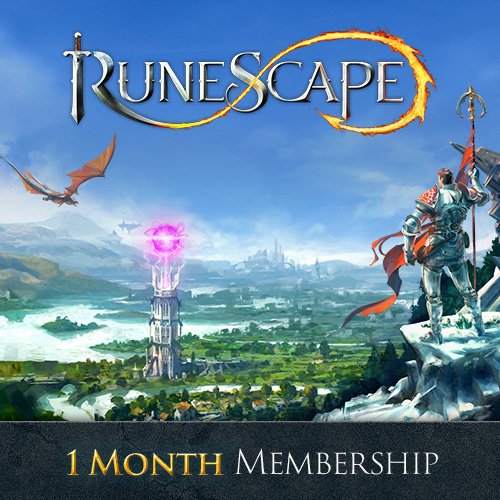 30 Day Membership: RuneScape 3 [Instant Access]
30 Day Membership: RuneScape 3 [Instant Access]

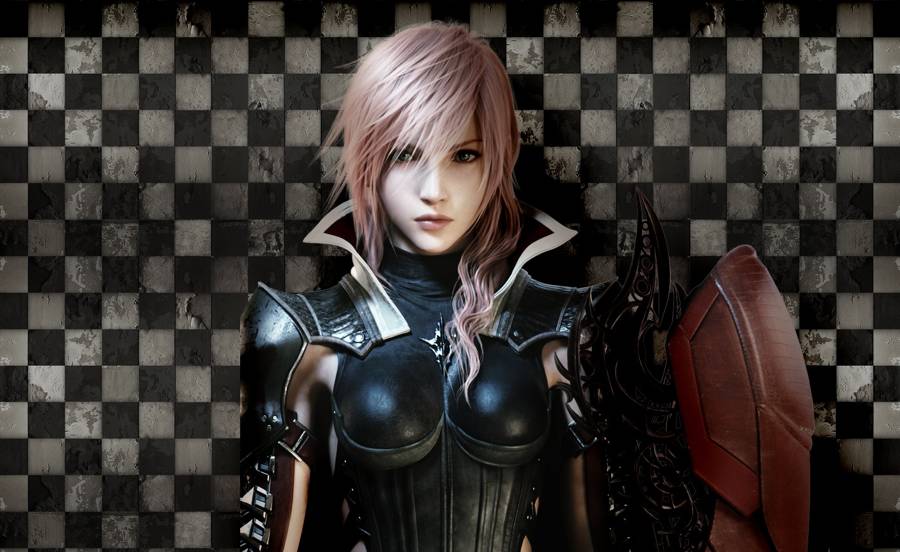
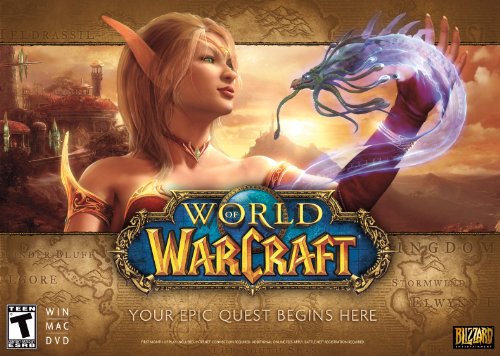
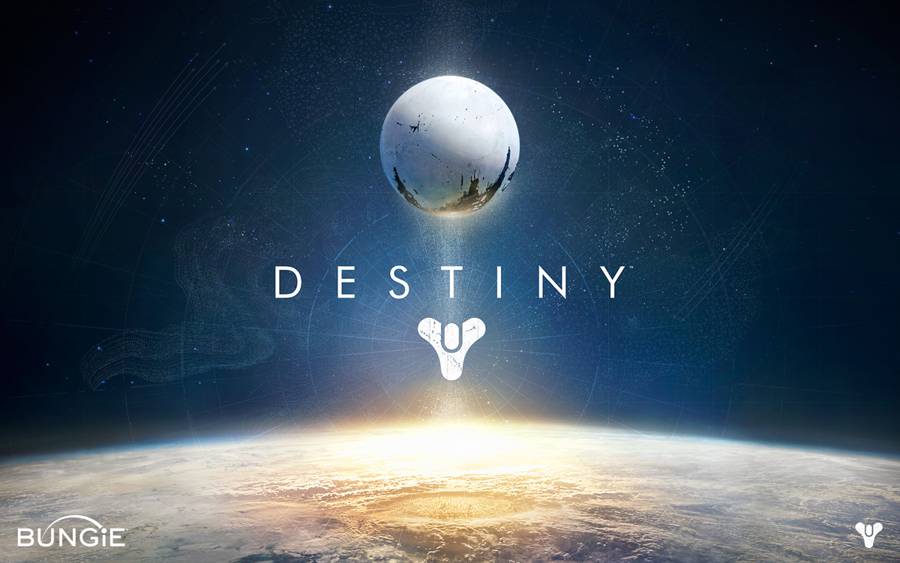 Destiny Guide: Earth Golden Chest Locations
Destiny Guide: Earth Golden Chest Locations Elder Scrolls V: Skyrim Prophet Quest Guide for Vampires
Elder Scrolls V: Skyrim Prophet Quest Guide for Vampires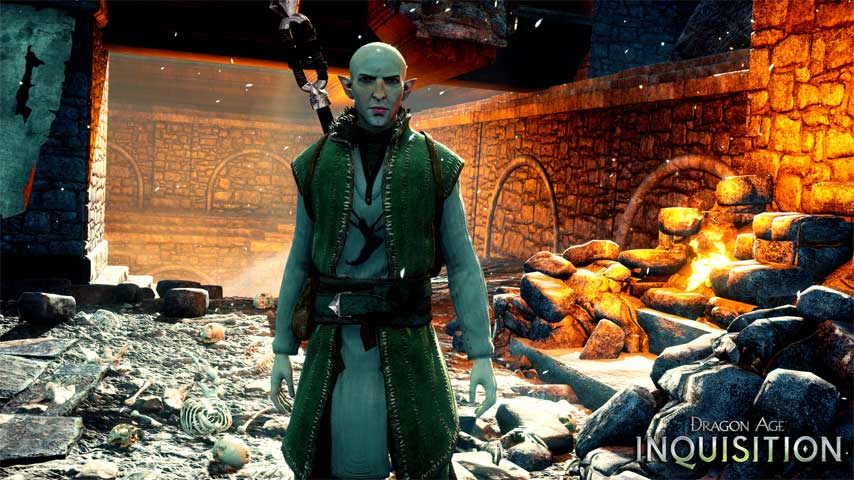 Dragon Age Inquisition guide and walkthrough part 5: From the Ashes
Dragon Age Inquisition guide and walkthrough part 5: From the Ashes How To Get New Outfits For Your Characters In Dragon Quest Heroes
How To Get New Outfits For Your Characters In Dragon Quest Heroes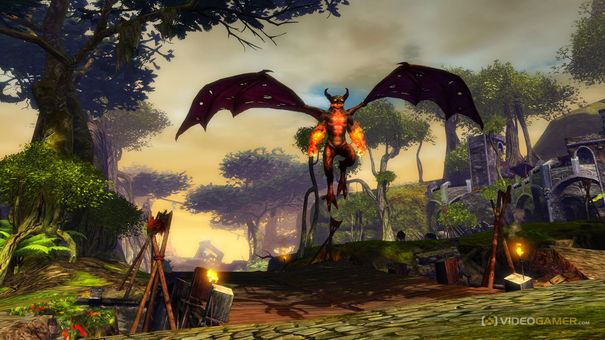 The Week in Review: Guild Wars 2 Edition
The Week in Review: Guild Wars 2 Edition